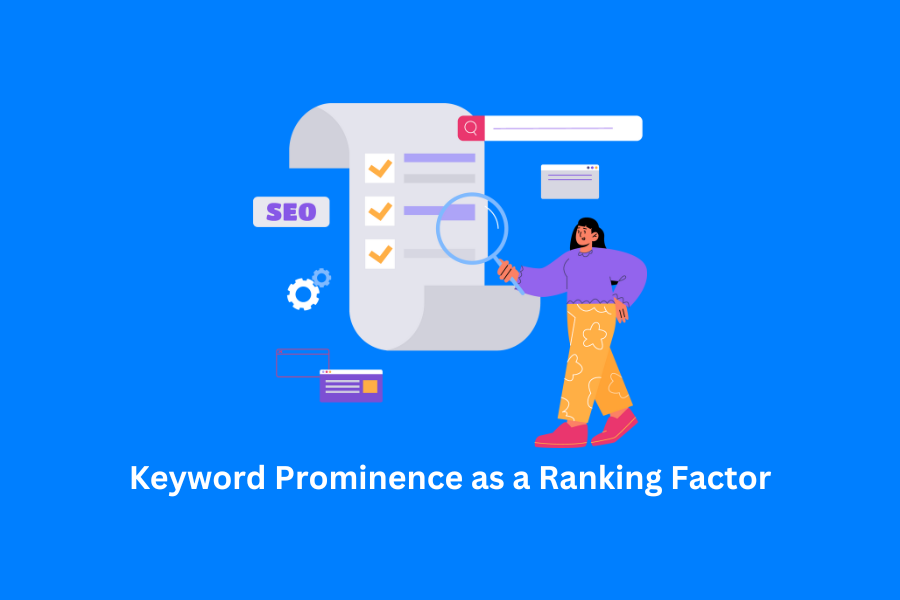Keyword research is a fundamental aspect of Search Engine Optimization (SEO). It involves identifying the specific words and phrases that people use to search for information, products, or services online. By understanding and targeting these keywords, businesses can improve their visibility on search engine results pages (SERPs), drive relevant traffic, and ultimately increase conversions.
But keyword research is more than just picking words that seem relevant. It requires a strategic approach, particularly when scaling efforts across large websites or multiple projects. This article will explore what keyword research in SEO is, why it’s crucial, how to do it right—especially when operating at scale—and how keyword mapping and keyword research services can enhance your SEO strategy.
What is Keyword Research in SEO?
Keyword research is the process of discovering the terms your target audience is using when searching for content related to your business. These keywords can range from single words (e.g., “shoes”) to longer phrases (e.g., “best running shoes for men”). By optimizing your content for these terms, you make it easier for search engines like Google to understand what your site is about, which can lead to higher rankings and more traffic.
There are several types of keywords:
- Short-tail keywords: These are broad and general (e.g., “laptops”). They typically have high search volume but are also very competitive.
- Long-tail keywords: These are more specific and detailed (e.g., “best budget laptops for students”). They often have lower search volumes but higher conversion rates because they cater to more targeted searches.
- LSI keywords: Latent Semantic Indexing (LSI) keywords are terms related to the main keyword that help search engines understand the context of your content (e.g., if your main keyword is “apple,” LSI keywords could include “fruit” or “tech company”).
Understanding these different types of keywords and how they fit into your content strategy is essential for effective SEO.
Why is Keyword Research Important?
Keyword research is crucial for several reasons:
- Improved Search Visibility: By targeting the right keywords, you increase the chances of your content appearing in relevant search results, making it easier for potential customers to find you.
- Targeted Traffic: Not all website traffic is equal. Keyword research helps you attract visitors who are more likely to engage with your content, products, or services.
- Content Strategy: Knowing what your audience is searching for allows you to create content that meets their needs, answers their questions, and provides value.
- Competitive Advantage: Effective keyword research can help you identify gaps in the market and target keywords your competitors may be overlooking.
- ROI and Conversion Rates: By focusing on keywords with commercial intent or those closer to the conversion funnel, you can improve your return on investment (ROI) and conversion rates.
How to Do Keyword Research Right
- Start with Seed Keywords: Begin with broad terms related to your industry or product. For example, if you run an online bookstore, your seed keywords might be “books,” “buy books online,” or “best novels.”
- Use Keyword Research Tools: Tools like Google Keyword Planner, Ahrefs, SEMrush, and Moz Keyword Explorer can help you discover related keywords, search volume, competition, and keyword difficulty. These tools can also provide insights into trends and keyword variations.
- Analyze Search Intent: Understanding the intent behind a keyword is crucial. Is the searcher looking for information, trying to make a purchase, or comparing options? Tailor your content to meet the searcher’s intent, whether it’s informational, navigational, transactional, or commercial.
- Consider Long-Tail Keywords: Long-tail keywords may have lower search volumes but often yield higher conversion rates. These keywords are less competitive and more specific to what users are searching for, making them valuable for targeting niche audiences.
- Analyze Competitor Keywords: Identify what keywords your competitors are ranking for using tools like Ahrefs or SEMrush. This can help you discover new opportunities and refine your keyword strategy.
- Cluster Keywords by Topic: Organize your keywords into clusters or themes. This allows you to create content that covers a topic comprehensively, helping you rank for multiple keywords and providing a better user experience.
- Optimize for Featured Snippets: Featured snippets, also known as “position zero,” are brief answers that appear at the top of Google’s search results. Optimizing your content for these can boost visibility and drive more traffic. Use questions and answers, lists, and structured data to improve your chances of ranking in featured snippets.
- Monitor and Update: Keyword research isn’t a one-time task. Continuously monitor your keyword performance and update your content strategy based on changing trends, search behaviors, and competitors.
The Importance of Keyword Mapping
Keyword mapping is the process of assigning target keywords to specific pages on your website. This ensures that each page is optimized for a distinct set of keywords, avoiding keyword cannibalization (where multiple pages compete for the same keyword) and ensuring that your content strategy is cohesive and targeted.
Here’s how keyword mapping works:
- Map Keywords to User Intent: Assign keywords based on the user’s intent. For example, a keyword with informational intent might be mapped to a blog post, while a transactional keyword would be mapped to a product page.
- Create a Keyword Matrix: Develop a spreadsheet that lists all the keywords alongside their assigned pages. This helps you visualize which keywords are covered and identify any gaps.
- Update Regularly: As your website grows and evolves, regularly update your keyword map to ensure it aligns with your current SEO strategy.
Keyword mapping is particularly crucial when scaling your SEO efforts across large websites or multiple projects. It provides a clear structure, helps in organizing content creation, and ensures that no opportunities are missed.
Scaling Keyword Research
When managing large websites, multiple projects, or scaling efforts, keyword research becomes more complex. Here’s how to do it effectively:
- Automate Repetitive Tasks: Use tools and automation to streamline tasks like keyword discovery, clustering, and tracking. Tools like SEMrush and Ahrefs offer features that automate various aspects of keyword research.
- Leverage Data-Driven Insights: Use data analytics to prioritize keywords that offer the most potential. This includes looking at historical data, trends, and performance metrics.
- Collaborate with Teams: Ensure collaboration between SEO specialists, content creators, and marketing teams. Clear communication and a shared understanding of goals will help ensure consistency and efficiency across large-scale projects.
- Focus on Localization: If your business operates in multiple regions, localize your keyword research to target specific markets. This can involve using region-specific keywords, analyzing local search trends, and adapting your content to meet the needs of different audiences.
- Create Scalable Content Frameworks: Develop templates and frameworks for content creation that can be easily adapted across different keywords and topics. This helps maintain quality and consistency while saving time and resources.
- Track Performance at Scale: Use advanced analytics and reporting tools to track keyword performance across multiple projects or websites. This allows you to identify trends, measure success, and make data-driven adjustments to your strategy.
Keyword Research Services
If you’re managing a large-scale SEO project or lack the resources to conduct keyword research in-house, keyword research services can be a valuable solution. These services are provided by SEO agencies and specialists who have the expertise, tools, and experience to perform in-depth keyword analysis.
Here’s what you can expect from keyword research services:
- Comprehensive Keyword Analysis: Professionals use advanced tools to discover high-potential keywords, analyze search intent, and assess competition. This analysis is tailored to your specific industry, target audience, and business goals.
- Customized Keyword Strategy: Based on the research, you’ll receive a tailored keyword strategy that aligns with your overall SEO and content marketing goals. This strategy may include short-tail, long-tail, and LSI keywords, along with suggestions for content creation and optimization.
- Keyword Mapping and Implementation: Keyword research services often include keyword mapping, ensuring that each page of your website is optimized for the right keywords. This structured approach helps you maximize search visibility and avoid keyword cannibalization.
- Ongoing Monitoring and Updates: SEO is not static, and search trends can change. Many keyword research services offer ongoing monitoring and updates to ensure your keyword strategy remains effective and competitive.
- Scalability: Whether you need keyword research for a single website or across multiple projects, keyword research services can scale to meet your needs. This ensures consistency and efficiency, even for large or complex SEO campaigns.
Conclusion
Keyword research is the foundation of any successful SEO strategy. By understanding what your audience is searching for and optimizing your content accordingly, you can improve your search visibility, attract targeted traffic, and achieve your business goals. Whether you’re just starting out or scaling your efforts, following the right processes and using the right tools will ensure that your keyword research is effective and impactful.
Keyword mapping further enhances your strategy by organizing and aligning keywords with the right content, ensuring that every opportunity is maximized. And if you find the process overwhelming or resource-intensive, keyword research services can provide the expertise and support needed to elevate your SEO efforts.
Remember, keyword research is an ongoing process. Stay adaptable, keep refining your strategy, and continuously monitor your performance to stay ahead of the competition.










